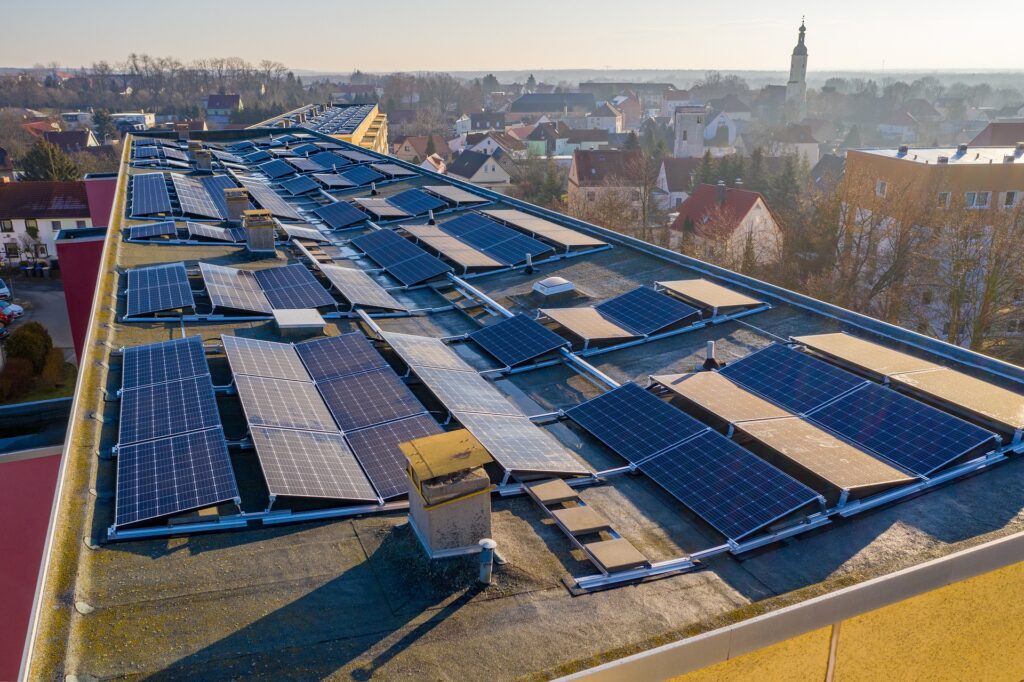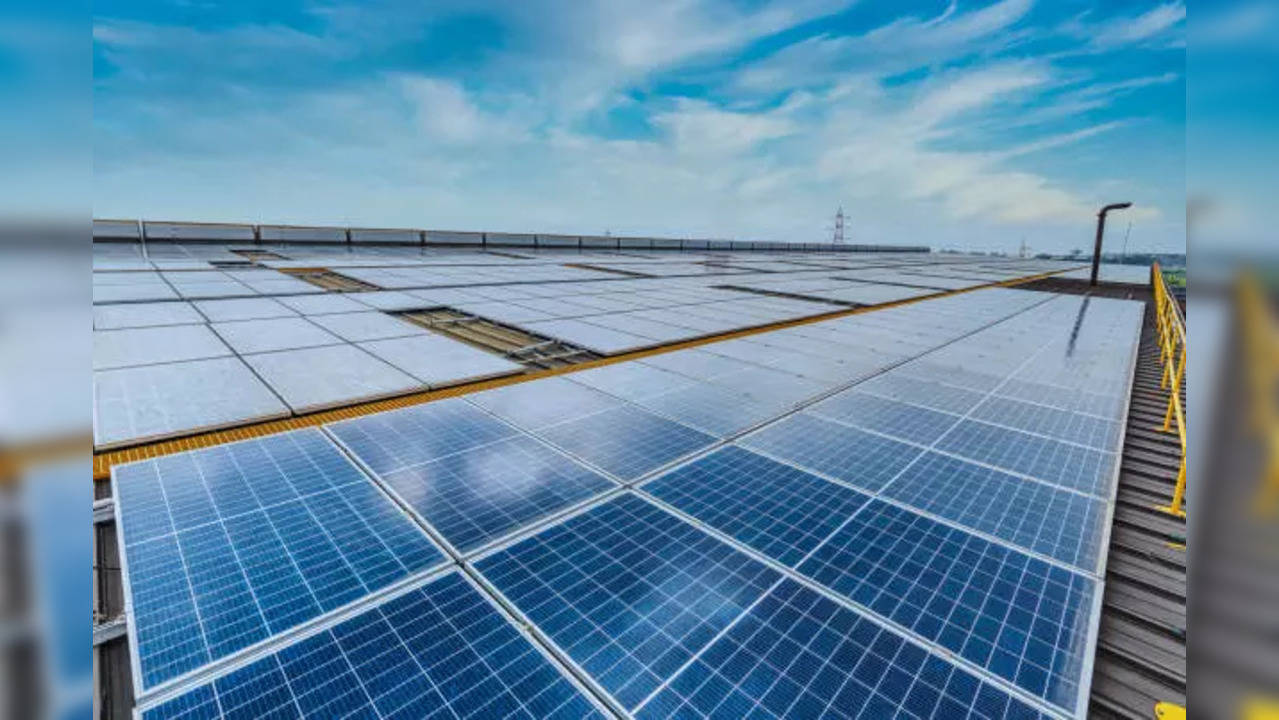Yes, it is safe to live near solar panels. Solar panels do not emit any harmful radiation.
Living near solar panels can have both positive and negative effects on your lifestyle and health. Solar panels are considered safe for the environment and people living nearby. The energy produced from solar panels is renewable and sustainable, reducing reliance on fossil fuels and contributing to a cleaner environment.
As the world increasingly embraces renewable energy sources, solar panels have become a common sight on rooftops and in fields. While the benefits of solar energy are widely recognized, ranging from reduced electricity bills to a smaller carbon footprint, some people have concerns about the safety of living near solar panels. Questions about potential health risks, environmental impacts, and overall safety are common. This guide aims to address these concerns, providing a clear and comprehensive overview of the safety aspects associated with solar panel installations. By exploring the science and facts behind solar technology, we can better understand why living near solar panels is not only safe but also beneficial for individuals and communities alike.
Is It Safe to Live Near Solar Panels?
As solar energy becomes an increasingly popular source of renewable energy, more individuals and communities are opting to install solar panels. This surge in adoption brings with it questions about the safety of living near these installations. Addressing these concerns comprehensively can help dispel myths and provide a clear understanding of the safety aspects associated with solar panels.
Health and Safety Considerations
1. Electromagnetic Fields (EMFs)
- Concern: There is a common worry that solar panels generate harmful electromagnetic fields (EMFs) which could affect human health.
- Reality: Solar panels produce very low levels of EMFs, much lower than many everyday household appliances such as microwaves and cell phones. Extensive research has shown that these EMF levels are not harmful to human health. Safe to Live near Solar Panels.
2. Chemical Exposure
- Concern: The use of chemicals in solar panel manufacturing, such as cadmium in some types of panels, might pose a risk if released.
- Reality: The materials used in solar panels are encapsulated and are not released into the environment during normal operation. Furthermore, proper recycling and disposal at the end of their lifecycle ensure these materials do not pose a significant risk. Safe to Live near Solar Panels.
3. Glare and Aesthetics
- Concern: Solar panels might cause glare, which can be a visual nuisance or even a hazard in some situations.
- Reality: Modern solar panels are designed to absorb as much sunlight as possible and reflect very little. Any potential glare is usually less than that produced by other common surfaces, like glass windows or water.
4. Fire Hazard
- Concern: There is a fear that solar panels might increase the risk of fire.
- Reality: Solar panels are generally safe and have a low risk of causing fires when properly installed and maintained. Fires associated with solar panels are rare and usually result from faulty installation or defective components. Adhering to installation standards and regular maintenance minimizes this risk. Safe to Live near Solar Panels.
Environmental Impact
1. Land Use
- Concern: Large solar farms might impact land use and local ecosystems.
- Reality: Solar farms are often sited on land with minimal ecological value, such as deserts or brownfields. Additionally, innovative approaches like agrivoltaics (using land for both agriculture and solar panels) maximize land use efficiency and reduce potential negative impacts.
2. Wildlife
- Concern: Potential impacts on local wildlife.
- Reality: Properly designed and sited solar installations are meant to minimize their impact on local wildlife. Environmental impact assessments are typically conducted to ensure minimal disruption to local fauna and flora.
Economic and Social Benefits
1. Energy Independence
- Benefit: Solar energy reduces reliance on fossil fuels and enhances energy security.
- Reality: By generating clean, renewable energy, solar panels contribute to a more sustainable and resilient energy grid, benefiting both the environment and society.
2. Property Values
- Benefit: Solar installations can increase property values.
- Reality: Homes equipped with solar energy systems often have higher property values and sell more quickly than those without, reflecting the growing demand for energy-efficient homes.
Regulatory and Safety Standards
1. Building Codes
- Concern: Ensuring compliance with local building codes and regulations.
- Reality: Solar panel installations must adhere to stringent local, national, and international standards, ensuring their safety and reliability.
2. Installer Certification
- Concern: Quality of installation.
- Reality: Professional solar installers are typically certified by relevant authorities (e.g., NABCEP in the U.S.), ensuring installations meet safety and quality standards.

Living near solar panels is safe and comes with numerous benefits. Concerns such as EMF exposure, chemical hazards, and fire risks are minimal and can be further mitigated through proper installation and maintenance. Solar energy plays a crucial role in building a sustainable future, providing environmental, economic, and social benefits. By ensuring compliance with safety standards and choosing certified installers, individuals and communities can confidently embrace solar technology, contributing to a cleaner and more sustainable world.

Credit: www.timesnownews.com
Frequently Asked Questions On Is It Safe To Live Near Solar Panels
Is It Safe To Live Near Solar Panels?
Living near solar panels is safe as they emit no harmful emissions, produce quiet operation, and require little maintenance.
Can Solar Panels Cause Health Problems?
Solar panels do not cause health problems, as they do not emit any harmful radiations and are generally considered safe.
Do Solar Panels Decrease Property Value?
Solar panels can actually increase property value, as they are seen as an eco-friendly and cost-saving addition to a home.
Conclusion
To conclude, living near solar panels can be a safe and environmentally friendly choice. Extensive research has shown that the electromagnetic fields emitted by solar panels are not harmful to human health. Additionally, solar panels contribute to a cleaner energy source and reduce greenhouse gas emissions.
However, it is crucial to ensure proper installation and maintenance of solar panels to avoid any potential risks. Embracing solar energy can be a great way to contribute to a sustainable future.